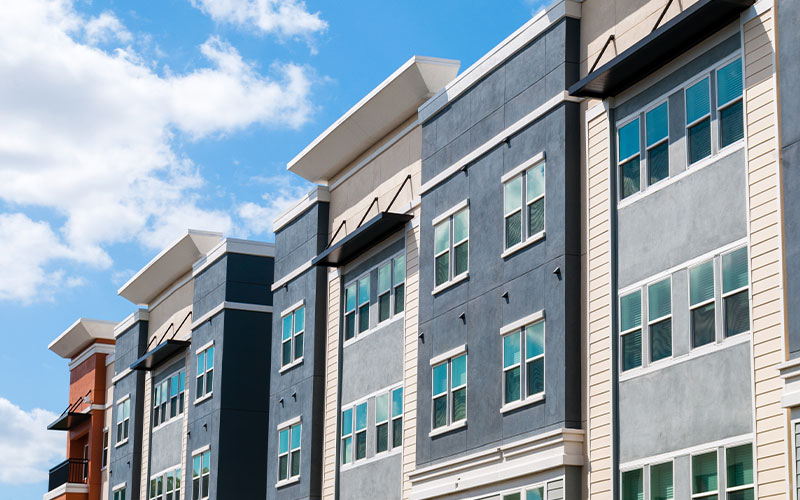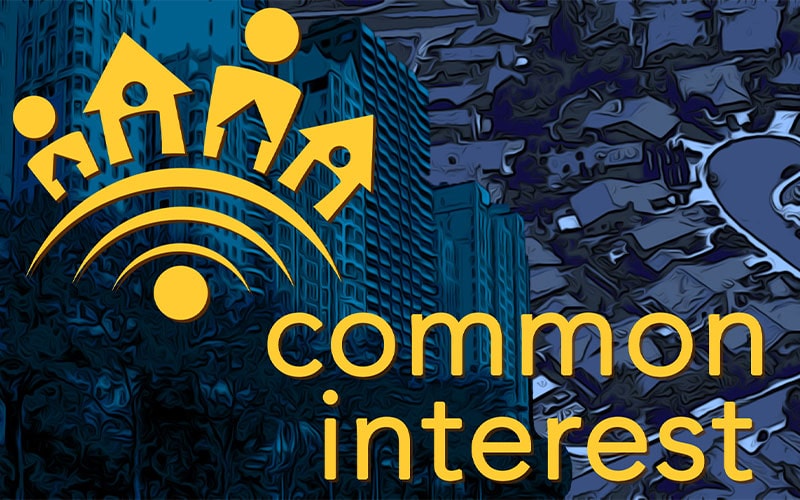With the Senate’s recent passage of HB 1438, the Cannabis Regulation and Tax Act (“Cannabis Act”), Illinois is poised to become one of the 11 states that permit both recreational and medical marijuana use. HB 1438 will likely be passed by the Illinois House and subsequently signed into law by Governor Pritzker (feel free to view the full text linked here). Now, the big question for condominium board members, unit owners and property managers is: “How do we deal with the inevitable nuisance and second-hand smoke complaints sure to result from this?”
The good news is that the Cannabis Act includes a proposed amendment to the Illinois Condominium Property Act (“ILCPA”) that adds a new section specifically related to marijuana use. The proposed language of the new Section 33 of ILCPA is as follows:
Sec. 33. Limitations on the use of smoking cannabis. The condominium instruments of an association may prohibit or limit the smoking of cannabis, as the term “smoking” is defined in the Cannabis Regulation and Tax Act, within a unit owner’s unit. The condominium instruments and rules and regulations shall not otherwise restrict the consumption of cannabis by any other method within a unit owner’s unit, or the limited common elements, but may restrict any form of consumption on the common elements.
With the language of proposed Section 33 in mind, let’s address the key questions for boards and managers:
1. Can we ban marijuana entirely from our association?
Not entirely. The association can prohibit “smoking” of marijuana through traditional combustion methods (meaning smoking in the traditional sense). The association has no right to prohibit the use of marijuana through other, less conventional methods, such as consuming food or beverages infused with cannabis, cannabis-infused topical ointments, or “vaping” (the inhalation and exhalation of a cannabis-infused aerosol). Section 33 states that “the condominium instruments may prohibit or limit the smoking of cannabis.” The Cannabis Act limits the definition of smoking to combustion only.
2. Ok, we can ban smoking via combustion only. Must we do so via an amendment to the declaration and bylaws or can we do it via a board-adopted rule?
If the association does not already have a smoking ban included in its “condominium instruments” (which ILCPA Section 2(l) defines as the declaration and bylaws and does not include the rules), then the ban on smoking marijuana must be accomplished only via an amendment to the declaration and bylaws.
Remember, declaration and bylaw amendments require unit owner approval (often 2/3 – 3/4 of all unit owners). Rules and regulations are adopted by the board only. The Illinois legislature clearly intended the proposed Section 33 of the ILCPA to preclude the board from limiting marijuana smoking by rule alone – if the association wants the ban, then unit owners will have to vote and an amendment to the condominium instruments must be recorded with the relevant recorder of deeds.
3. What if we don’t believe we could get the necessary unit owner approval to pass an amendment prohibiting marijuana smoking? Will our condominium be overrun with marijuana smokers?
Unlikely. First, proposed Section 33 allows the condominium board to adopt rules (via board vote only) to limit the use of marijuana in any form anywhere within the common elements. This does not include the individual units or, apparently, those limited common elements that are intended for “exclusive use” (such as private balconies, patios, etc.). Accordingly, there should not be a concern that the lobby is going to resemble Day 1 of Lollapalooza anytime soon. The board can adopt a rule to make sure no one is using marijuana where others may be present.
Secondly, most declarations already prohibit noxious and offensive activity, which can certainly include marijuana smoke seeping into units and hallways. A board can treat marijuana odor in the common elements exactly as it would loud construction noise, rowdy guests in the hallway, or a blaring television late at night – send the occupant a violation and (potentially) levy a fine, thus forcing the individual to smoke cannabis in a less-bothersome, more neighborly fashion. Remember, just because an activity is legal, does not mean that an individual within a community association is permitted to engage in that activity in a fashion that objectively creates a nuisance for others. Even without an outright ban on marijuana smoking, the board can enforce the declaration provisions to ensure the comfort of other association occupants. Second-hand smoke risks from marijuana are the same as those from tobacco; heart disease, lung cancer, and childhood asthma. All smoking by combustion has the potential to create a nuisance for other occupants of a condominium association, so the board should consult with the association legal counsel to take action as necessary.
4. The ILCPA does not govern our association – does this law apply to our townhome / Coop / HOA?
No. The Cannabis Act has introduced an amendment to ILCPA only. There is no corresponding amendment to the Common Interest Community Association Act (“CICAA”).
In sum, the board should be able to balance the demands of anti-marijuana owners with those who have the legal right to use cannabis in their home without fear of harassment. If the marijuana smoker is not violating the declaration or rules and not bothering anyone else, the board should leave the matter alone (after all, harassing an owner may expose the board to some liability). However, the board need not be scared by the fact that cannabis use will soon be legal in Illinois – if a unit owner, occupant, tenant or guest is violating the declaration by bothering others, then regardless of whether that activity is deemed legal in Illinois, the board has a duty to act.




 CAI - Illinois Chapter
CAI - Illinois Chapter 



